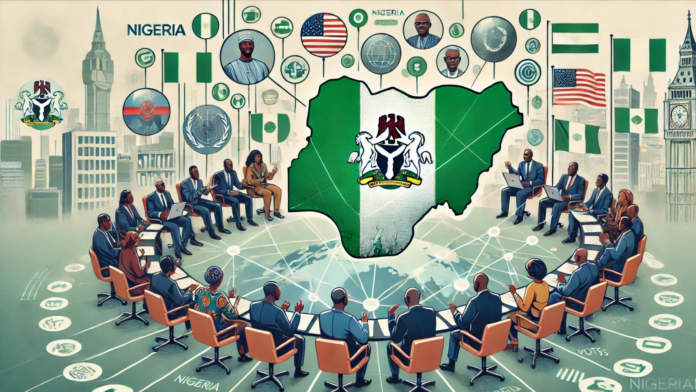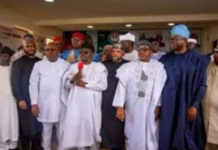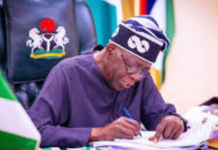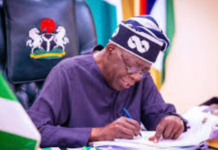Nigeria, with a vibrant and sizable diaspora spread across the globe, has a population of citizens living abroad that has grown significantly in recent decades. While their contributions to the economy through remittances are widely recognized, the role of diaspora Nigerians in shaping politics and policies has come under increasing focus. In recent years, Nigerians in the diaspora have actively engaged in Nigerian politics, advocating for reforms, supporting movements, and influencing policies through their economic power, intellectual capital, and international networks. As Nigeria confronts numerous social, political, and economic challenges, diaspora engagement has proven to be a powerful resource with untapped potential.
The Economic Influence of Diaspora Nigerians
Remittances from Nigerians abroad have a substantial impact on the national economy. According to World Bank data, remittances to Nigeria have consistently ranked among the highest in Africa, contributing billions of dollars annually. This economic influence translates into significant political clout. Diaspora Nigerians often leverage their financial contributions to demand better governance, transparency, and accountability from the government. This influence is not limited to sending money back home; they invest in local businesses, real estate, and philanthropic projects, often pushing for policy reforms that foster economic stability and improve the investment climate in Nigeria.
Advocacy for Political Reform
Diaspora Nigerians are vocal advocates for political reform and accountability. In recent years, groups such as the Nigerian diaspora organizations in North America, Europe, and other parts of the world have engaged with Nigerian leaders, urging them to address issues like corruption, electoral transparency, and human rights. During the #EndSARS protests in 2020, Nigerian diaspora communities mobilized globally to advocate for police reform, drawing international attention to the Nigerian government’s response to protests.
Diaspora Nigerians have leveraged platforms such as social media, town hall meetings, and global advocacy networks to amplify the voices of Nigerian citizens, calling for tangible changes in governance. Their international visibility and connections enable them to influence policymakers both within Nigeria and in the global arena, often working alongside international organizations to support reforms that promote democracy, transparency, and human rights.
Lobbying for Policy Change and Bilateral Relations
With Nigeria’s strategic importance on the African continent, diaspora communities have been instrumental in lobbying foreign governments and organizations to support policies that benefit Nigeria. Nigerian diaspora organizations have engaged with the United Nations, the African Union, and governments of host countries to advocate for developmental aid, favorable trade agreements, and foreign direct investment that aligns with Nigeria’s development goals.
Additionally, diaspora Nigerians have played a vital role in influencing foreign policy toward Nigeria. Through lobbying efforts, they have successfully pushed for changes in areas such as healthcare, security, and education, impacting bilateral agreements that benefit Nigeria. In the United States, for example, Nigerian-American communities have campaigned for policies that foster U.S.-Nigeria collaboration in combating terrorism and promoting public health initiatives.
Intellectual Contributions and Knowledge Transfer
The Nigerian diaspora includes a substantial number of professionals in fields like technology, healthcare, academia, and finance. These individuals bring valuable expertise that has proven instrumental in fostering knowledge transfer back to Nigeria. Many diaspora professionals have set up foundations, NGOs, and mentorship programs aimed at building capacity and improving skills in Nigeria’s workforce. Programs like the “Diaspora Mentorship Program” and the “Nigerian American Professionals Network” have facilitated intellectual exchange, providing guidance to Nigerian professionals and students.
This knowledge transfer has had a direct impact on policies as well. For instance, diaspora professionals have contributed to the drafting of policies on healthcare reforms, economic diversification, and educational development. They work closely with Nigerian policymakers, offering insights into global best practices, technology innovations, and solutions that can address Nigeria’s challenges. By sharing their expertise, they help bridge the gap between Nigeria and the international community, fostering policies that align with global standards.
Political Engagement and Voting Rights
One of the long-standing demands of the Nigerian diaspora has been the right to vote in national elections. Though many diaspora Nigerians are actively engaged in political discourse, they are currently unable to vote from abroad. Granting voting rights to Nigerians living overseas has been a topic of discussion, with diaspora groups pushing for electoral reforms that would enable them to participate directly in Nigeria’s democratic process.
Allowing diaspora voting could broaden democratic participation and empower diaspora Nigerians to influence policy decisions on key issues. Their involvement could lead to a shift in electoral dynamics, potentially prioritizing issues like infrastructure, security, and economic development. With the influence they already wield economically, providing them the right to vote could create a powerful constituency advocating for more effective governance.
Challenges to Diaspora Engagement
While the role of diaspora Nigerians in politics and policy is significant, several challenges hinder their full engagement.
1.Political Barriers
Despite interest in participating in Nigerian politics, diaspora Nigerians face restrictions that prevent direct engagement, such as the lack of absentee voting rights. Additionally, Nigerian political structures sometimes view diaspora influence with skepticism, questioning their commitment to the country’s immediate issues.
2.Fragmented Diaspora Representation
The Nigerian diaspora is diverse and dispersed, with varying regional, religious, and political affiliations. This fragmentation sometimes impedes cohesive advocacy efforts, making it challenging to present a united front on policy issues.
3.Financial and Logistical Constraints
While remittances are substantial, financing large-scale political initiatives from abroad poses challenges. Furthermore, logistics such as coordinating political rallies or mobilizing advocacy in Nigeria from abroad require a network of resources and organizational structures that not all diaspora groups can readily access.
Moving Forward: Maximizing Diaspora Impact on Nigerian Politics
To harness the full potential of the diaspora’s influence on Nigerian politics, several strategies could be implemented:
1.Diaspora Voting Rights
Institutionalizing diaspora voting would enable Nigerians abroad to play a direct role in shaping the political landscape. With the commitment and resources they bring, diaspora voting could add a significant dimension to democratic engagement in Nigeria.
2.Engagement with Policy Makers
The government could foster stronger ties with diaspora professionals and organizations, establishing advisory roles that allow diaspora Nigerians to contribute to policy decisions formally. By institutionalizing these connections, the government could facilitate consistent knowledge transfer and leverage diaspora expertise.
3.Creating a Diaspora Commission
Establishing a Nigerian Diaspora Commission could act as a bridge between diaspora communities and the government, organizing resources, coordinating advocacy efforts, and ensuring that diaspora interests are represented in national policy discussions.
4.Encouraging Investments in Key Sectors
Promoting investment opportunities for diaspora Nigerians in sectors like education, healthcare, and technology can stimulate development and indirectly shape policy by driving demand for improvements in infrastructure, regulatory frameworks, and governance.
Conclusion
Diaspora Nigerians play an increasingly crucial role in shaping politics and policies, using their economic clout, intellectual capital, and advocacy platforms to push for a more equitable and prosperous Nigeria. By engaging in advocacy, contributing expertise, and lobbying for foreign policy support, the Nigerian diaspora has proven to be a powerful force in advancing Nigeria’s interests on a global scale.
As Nigeria navigates its political and economic challenges, engaging the diaspora community will be essential in driving sustainable reform and fostering a democratic culture that values accountability, transparency, and inclusivity.




















